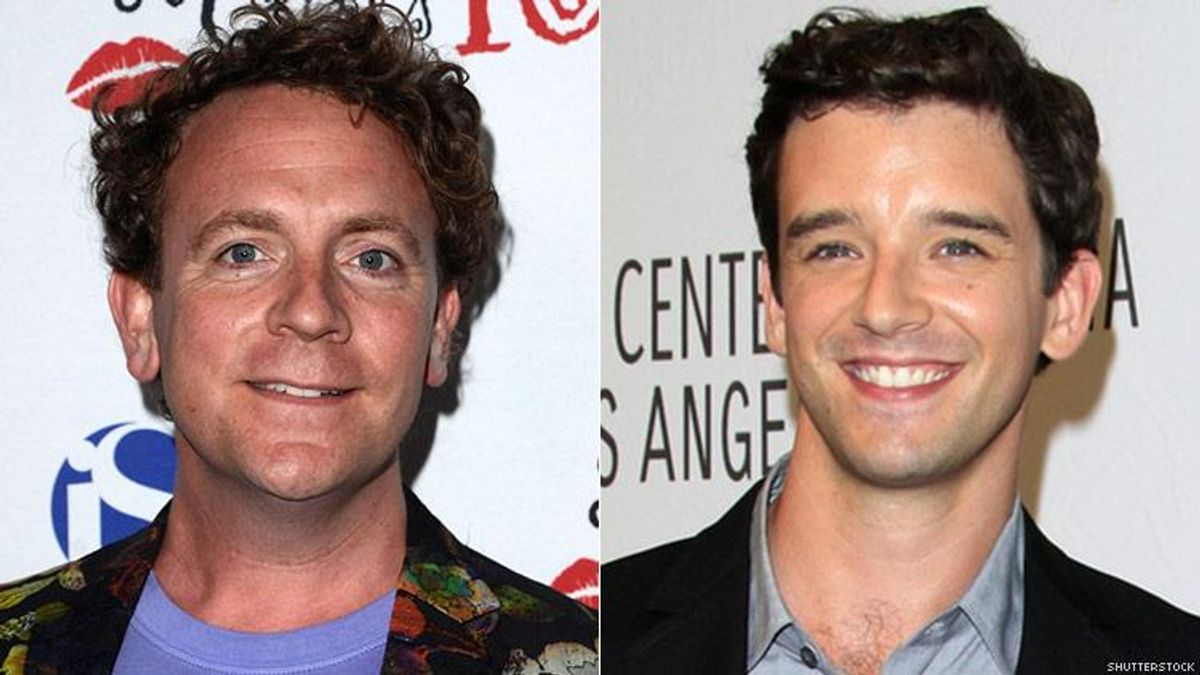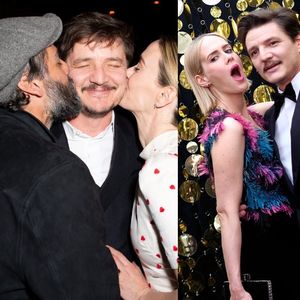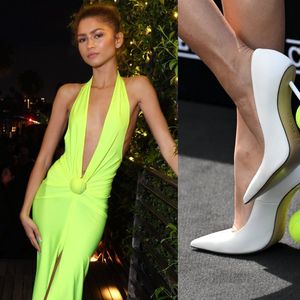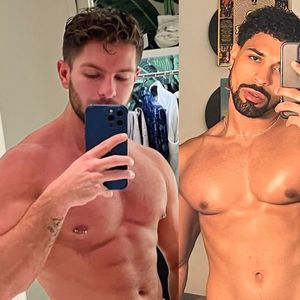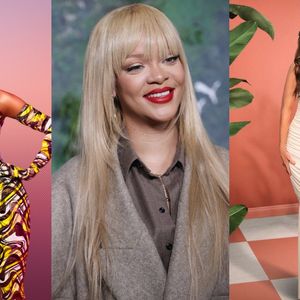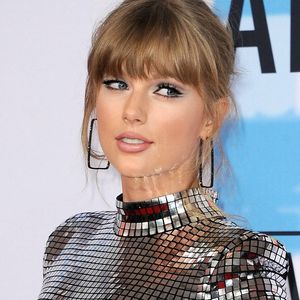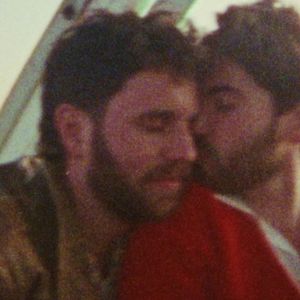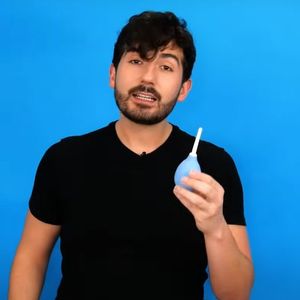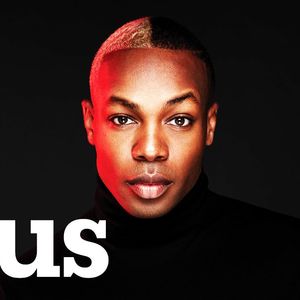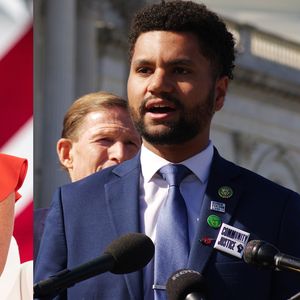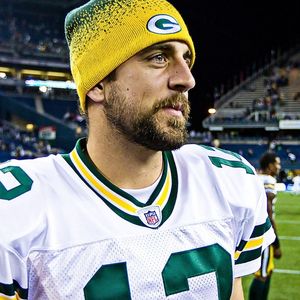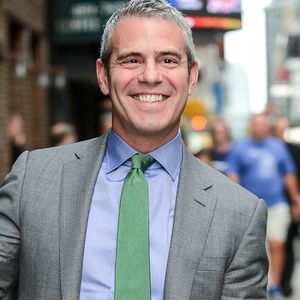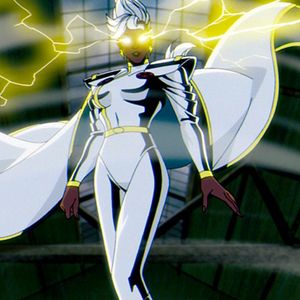The casting of straight actors in gay roles is a routine practice in Hollywood -- so much so that 37 percent of queer actors believe that producers and directors are biased against them.
The discrimination seems to be self-evident -- as this list of "57 Straight Actors Who Nabbed Oscar Noms for LGBT Roles" attests. After all, if the playing field were even, gay actors -- having lived authentic experiences as gay men -- should nearly always be the preferred choice for queer roles. The logic is, they understand these parts like their straight counterparts never can, and would thus turn out better performances.
Or would they?
One Day at a Time's Rita Moreno recounted a story at the Outfest Los Angeles LGBTQ Film Festival that presented a different possibility: Straight actors, because they never had to live with gay shame, may be less inhibited in their performances as queer and flamboyant characters.
To illustrate her point, Moreno -- speaking on a recent panel after the screening of Every Act of Life, a documentary about the life of gay playwright Terrence McNally -- told an anecdote about McNally's 1975 Broadway play about a gay bathhouse, The Ritz.
According to Moreno --who would go on to win a Tony Award for her performance as Googie Gomez in the play -- The Ritz initially cast a gay actor named Seth in the "diva" role of Chris. But with Seth, "it wasn't working, and it wasn't working, and it wasn't working, and finally, they had to fire him," said Moreno.
After Seth's departure, actor F. Murray Abraham, who is straight, auditioned for the part. For his audition, Abraham "comes in, puts a towel around his head like Elizabeth Taylor, and says, 'If I were gay, this is the kind of gay I would be.'"
Needless to say, Abraham slayed the audition, was cast, and would go on to reprise his role in the 1976 film version of The Ritz. But his success in the part where Seth failed presented a puzzle to McNally and the play's director, Robert Drivas. "No one could understand why Seth, who was a gay person and an actor ... couldn't pull it off," said Moreno, who then "volunteered a reason" to her queer colleagues.
"I said, 'It's because you guys have been in the closet for so long, and Seth just didn't know how to be that kind of gay,'" she said. "He just couldn't do it. He'd been hiding so much for so many years that he couldn't do it. And then comes a straight guy, this crazy Arab, and he was fantastic and it was delicious."
"My God, you're right," McNally said at the time, as recounted by Moreno.
Moreno's story resonated with gay actors in the Outfest audience at the Directors Guild of America, among them Michael Urie (Partners) and Drew Droege (Bright Colors and Bold Patterns). While listening to the panel, Droege was initially taken aback by Moreno's assertion that, as he paraphrased it, "the straight guy played the gay guy better than the gay guy played the gay guy."
"I thought if there's a period there, there's gonna be a real problem with that," said Droege.
Likewise, Urie thought Moreno's story was "problematic" at the outset. "They fired a gay actor for playing this gay character because it wasn't working. And then they hired a straight actor. And I remember when she said it, I said quietly under my breath, 'So we could learn,'" he recounted.
Yet when Moreno delivered her conclusion -- that internalized shame was keeping queer actors from their potential -- it hit home. "It was so illuminating, so true," said Urie.
"Her insight was spot on," Droege agreed. "And it still happens today when we get these roles that we go out for that are like, these flaming gay guy roles that we all are ashamed of. We go, 'Oh, God, I don't want to play it too broad [or] over-the-top.' And then our straight friends walk in it go 'zomp' and tap into it, and it becomes more authentic and loose and fun."
Droege tackles gay shame in his own production, Bright Colors and Bold Patterns, a play directed by Urie in which Droege portrays a snarky and substance-abusing wedding guest, Gerry. (A filmed version of the production, which screened at Outfest, is now available to watch on BroadwayHD. At Outfest, Droege took home the U.S. Narrative Feature Grand Jury Prize for Best Performance for the part.) Often, this shame can be exacerbated by other gay people.
"We still can have a lot of shame and we have a lot of internalized homophobia," said Droege, who frequently observes bottom-shaming and fem-shaming among queer peers. "I don't have any straight friends that think being flamboyant is a bad thing. All my straight friends are like, 'Good for you. I love it.' ... But we get together, and there's so many times I see gay men tamping each other down."
Droege said he created Bright Colors and Bold Patterns in part because he saw a lack of diversity of gay characters in the media landscape. Both Droege and Urie said it is gay executives behind the scenes who often push for a glut of serious, "straight-acting" gay characters in film and television, which in turn contributes to a culture of fem-shaming.
"It doesn't help us see ourselves on-screen when it's a straight-acting gay guy ... or if it's played by a straight guy," said Urie.
"Gay white men have a lot more power [than women and people of color in Hollywood]," said Droege. "And yet gay white men think that if something's too gay, people won't like it. So they're the ones that have the shame."
"So many gay men, especially the generation above ours, had to act so macho and hetero in order to survive," Droege added. "And so they see these young [queer] kids and they recoil because they're like, 'I wasn't allowed to be that way. It must be nice to act that way. It must be nice to put on a dress and wear makeup.' And so they have homophobia because they couldn't deal with that in themselves."
Both Urie and Droege have struggled with this shame in their own lives. Urie recounted how, at a recent dinner party, a conversation with a tall, masculine, "Nordic" stranger named Hans took a turn when Hans mentioned he had a boyfriend. "I was like, this guy's gay! And I suddenly became shy [and] insecure, because here's this guy who's gorgeous and perfect and so hetero-seeming. And I was ashamed. I [felt] somehow inferior. ... It's deep in us, this shame."
Droege, who is also a stand-up comic, had a come-to-Jesus moment about shame when he watched a Netflix comedy special, Nanette. In the viral production, out performer Hannah Gadsby noted that queer comedians often rely on humor that is self-deprecating -- a tactic Droege often employs.
"That's what we do. I go out and I go, 'Hey, I'm a mess. Love me.' I do it in this way a lot," Droege said, "because I think that's what we know how to play."
While Droege has not vowed to quit comedy like Gadsby, her words -- and the attacks on human rights by the current political administration -- have caused Droege to reconsider his role as an entertainer.
"I don't feel a need to be funny all the time," said Droege. "I feel like we're at a place right now where being earnest and being legit and really feeling your feelings is powerful right now."
"A lot of it [is] getting older," he concluded. "I have things to say, and I want to be about something. I don't want to just like, 'Ha ha ha!' and trip on a banana peel."
